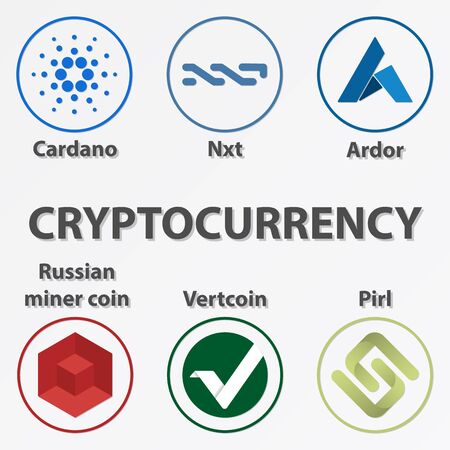
The VPN encrypts all data transmitted, making it impossible for hackers to access personal information or steal cryptocurrency. While there are various types of cryptocurrency scams, many scammers depend on the same or similar tactics when scamming users. Crypto scammers are in it for the money, but cryptocurrencies are not usually a money-making business.
- Cloud mining on its own is not necessarily a scam, but scammers have been known to use the tactic to secure crypto funds.
- In other cases, they want to meet the victim but cannot afford the trip expenses.
- Scammers are always finding new ways to steal your money using cryptocurrency.
- Also referred to as ‘malicious cryptomining’, cryptojacking became a widespread problem during the 2017 crypto boom, as the value of bitcoin and other cryptocurrencies’ prices skyrocketed.
- Scammers are always looking for new ways to steal your money, and the massive growth of cryptocurrency in recent years has created plenty of opportunities for fraud.
As part of the scam, the so-called investment managers claim to have made millions of dollars investing in Bitcoin and promise their victims that they will profit as well. If you invest in crypto, it’s important to know how to identify scams and legitimate operations. Many scams can be classified into both of these categories, and scammers may try to obtain both crypto funds and access codes. By understanding the common ways that scammers try to steal your information (and ultimately your money), you should be able to spot a crypto-related scam early and prevent it from happening to you.
Buy and sell cryptocurrencies on an expert picked exchange
We’ve found one company that’s positioned itself perfectly as a long-term picks-and-shovels solution for the broader crypto market — Bitcoin, Dogecoin, and all the others. In fact, you’ve probably used this company’s technology in the past few days, even if you’ve never had an account or even heard of the company before. The good news is, you don’t have to give up on your plans to diversify your portfolio into cryptocurrencies just to avoid scams. Following these tips can help you protect your finances while still giving you exposure to this exciting new asset class.

Scammers utilize real photographs and post them in false accounts, advertising, or articles to make it appear as if the celebrity is promoting a substantial cash return on investment. The sources supporting these assertions appear to be authentic, as they use respected brand names like ABC or CBS, as well as professional-looking websites and logos. Within the context of the cryptocurrency industry, phishing scams target information pertaining to online wallets. Specifically, scammers are interested in crypto wallet private keys, which are the keys required to access cryptocurrency. Their method is like many standard scams—they send an email with links that lead holders to a specially created website and ask them to enter private keys.
What Are Crypto Scams?
They are projects with a stated purpose and have coins or tokens designed to be used to help the blockchain function. Valid crypto projects won’t be posting on social media, pumping themselves up as the next best crypto that you shouldn’t miss out on. Before this process, there is generally a document published for the public to read, called a white paper.
- Finally, as with any investment opportunity, never invest money you can’t afford to lose.
- As a result, the hacker is able to compete against sophisticated crypto mining operations without the costly overhead and little risk.
- Having the rug pulled out from under you is never an enjoyable experience, but it can be especially frustrating and hurtful when it takes your capital or crypto funds with it.
- North Korean IT freelancers are attempting to capitalize on remote job opportunities by presenting beautiful credentials and posing as being located in the United States.
- The best way to avoid being scammed is to be aware of scammers’ techniques and remain alert.
To gain access to Bitcoin accounts, scammers will mimic recruiters or job seekers. They promise an exciting career but want cryptocurrencies as payment for work training with these crypto scams. Many scammers will convince users they are part of a long-term relationship, gain their trust and then demand cryptocurrency payments and transfers. There are legitimate businesses using blockchain technology to provide services.
Identity Theft and Online Security
Founders could distribute unregulated tokens or mislead investors about their products through false advertising. Crypto-based investments such as initial coin offerings (ICOs) and non-fungible tokens (NFTs) have given even more avenues for scammers to access your money. What’s important to know is that although crypto-based investments or business opportunities may sound lucrative, it doesn’t always reflect reality. You should not construe any such information or other material as legal, tax, investment, financial, cyber-security, or other advice. Nothing contained herein shall constitute a solicitation, recommendation, endorsement, or offer by Crypto.com to invest, buy, or sell any coins, tokens, or other crypto assets. Returns on the buying and selling of crypto assets may be subject to tax, including capital gains tax, in your jurisdiction.
You can buy cryptocurrency through an exchange, an app, a website, or a cryptocurrency ATM. Some people earn cryptocurrency through a complex process called “mining,” which requires advanced computer equipment to solve highly complicated math puzzles. People use cryptocurrency for many reasons — quick payments, to avoid transaction fees that traditional banks charge, or because it offers some anonymity. Scammers have also applied for remote work positions and lied about their identity and home country in order to gain access to crypto farms.
Similar to cash, crypto is accessible at any time from your very own digital wallet, but it isn’t protected by banks or a central protection organization. Without these additional protections, scammers know how to slip in and out undetected — leaving you coinless in their wake. Platforms will market to retail buyers and investors to get them to put up-front capital down to secure an ongoing stream of mining power and reward. These platforms do not actually own the hash rate they say they do and will not deliver the rewards after your down payment.
What is cryptocurrency?
Clever messaging from what often looks like a valid social media account can create a sense of legitimacy and spark a sense of urgency. This supposed ‘once-in-a-lifetime’ opportunity can lead people to transfer funds quickly in the hope of an instant return. Cryptocurrency is stored in a digital wallet, which can be online, on your computer, or on an external hard drive. A digital wallet has a wallet address, which is usually a long string of numbers and letters. In what is known as giveaway crypto scams, scammers offer to equal or multiply the cryptocurrency transferred to them. This seemingly ‘once-in-a-lifetime chance may entice people to send assets immediately in hopes of a quick return.
Because cryptocurrency is still a relatively new and often misunderstood form of technology, the number of crypto scams has skyrocketed in recent years. They might have fraud prevention or other measures in place to protect your crypto assets and money. White papers should always identify the members and developers behind the cryptocurrency.

Remind yourself that nothing is ever free, especially money and cryptocurrencies. Similar to the money in your bank account, scammers want your crypto and will do anything they can to get it. To protect your crypto assets, it helps to know when and how you’re being targeted and what you can do if you suspect that a cryptocurrency and communications related to it are a scam. North Korean IT freelancers are attempting to capitalize on remote job opportunities by presenting beautiful credentials and posing as being located in the United States. The US Treasury Department issued a warning about a North Korean scam targeting Bitcoin firms.
Signing up for two-factor authentication is also a must, as is password protecting your devices so if someone gets your phone or laptop they cannot access your wallet. If you are buying virtual currencies and storing them in a crypto wallet, you’ll want to make absolutely certain your digital wallet was developed by a reputable company with a solid track record. There is a lot of bad crypto advice out there, and you don’t want to listen to someone you shouldn’t and be led into a scam. Do not take advice from celebrities, people on social media or internet forums, or anyone else who you don’t know very well and who doesn’t have solid financial credentials. Cryptojacking is a type of cybercrime whereby a hacker co-opts an unsuspecting victim’s computing power to secretly mine cryptocurrency on the hacker’s behalf.
Fake calls from Apple and Amazon support: What you need to know
Hackers need only sneak a few lines of JavaScript code into a vulnerable device to begin illicitly mining crypto coins. Tactics include viruses, phishing, unpatched vulnerabilities, malicious online ads, unsecured browser extensions, and infected apps. Rug pulls usually take the form of a new crypto project, including a decentralised finance (DeFi) platform or project, or in some cases an NFT project.
Blackmail Scams
Crypto scams are similar to other types of financial scams, but scammers target crypto assets instead of cash, credit or other cash equivalents. Cryptocurrencies — like Bitcoin or Ether — are stored in physical or digital crypto wallets, which can also become the target of a bad actor’s scam. For example, some scammers create fake websites for ICOs and instruct users to deposit cryptocurrency into a compromised wallet.
In this scam, a con artist forms a relationship with someone they have met online. The relationship usually develops quickly, with professions of love soon made by the scammer. A tell-tale sign can be that the scammer never agrees to video calls under an excuse like a poor Internet connection.











